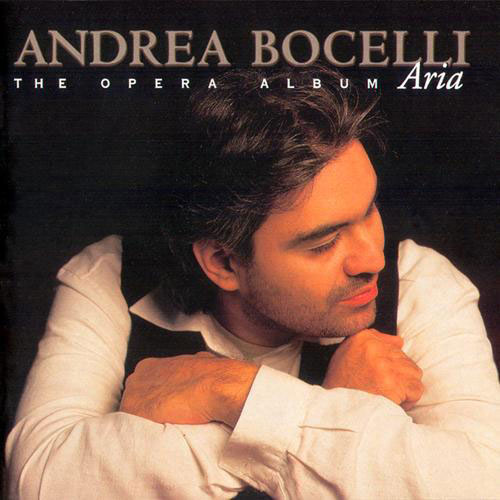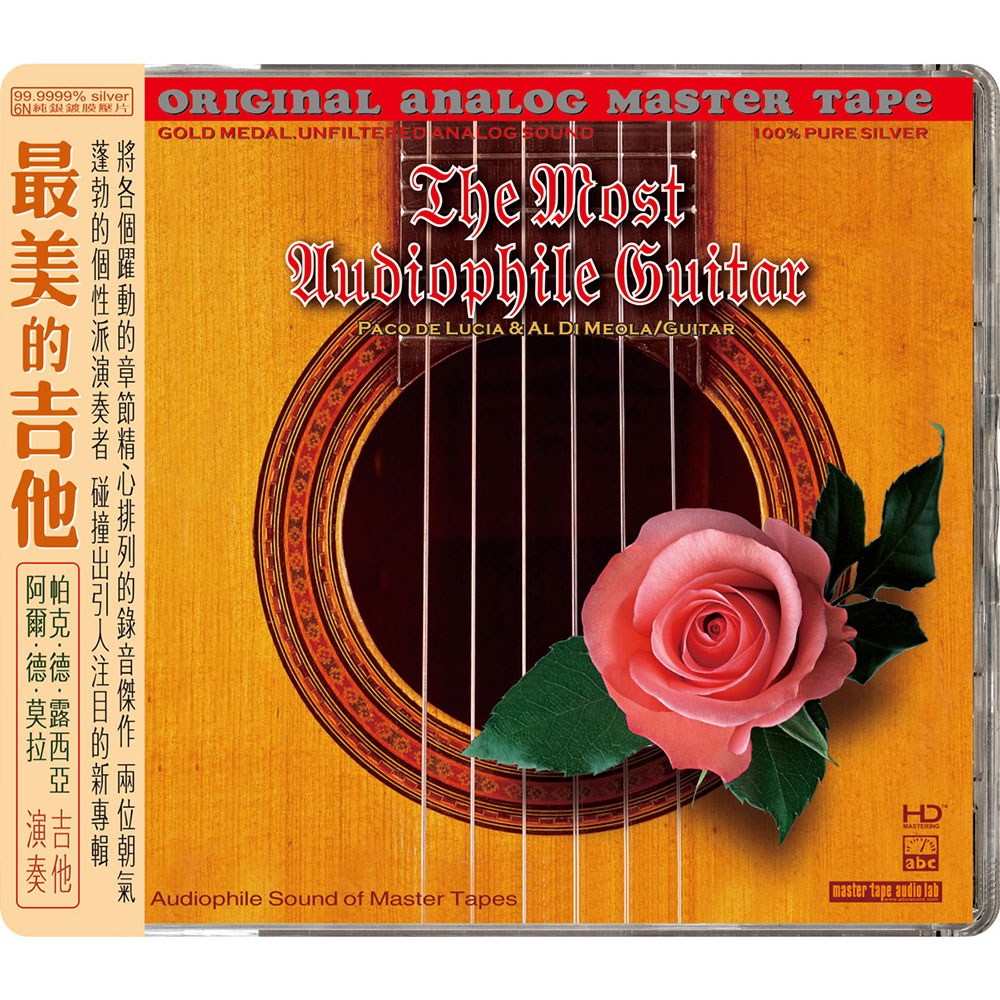Logowanie
Dziś nikt już tak genialnie nie jazzuje!
Bobby Hutcherson, Joe Sample
San Francisco
SHM-CD/SACD - NOWY FORMAT - DŻWIĘK TAK CZYSTY, JAK Z CZASU WIELKIEGO WYBUCHU!
Wayne Shorter, Freddie Hubbard, Herbie Hancock, Ron Carter, Elvin Jones
Speak no evil
UHQCD - dotknij Oryginału - MQA (Master Quality Authenticated)
Chesky! Niezmiennie perfekcyjny
Winylowy niezbędnik
ClearAudio
Double Matrix Professional - Sonic
najbardziej inteligentna i skuteczna pralka do płyt winylowych wszelkiego typu - całkowicie automatyczna
Andrea Bocelli
Aria - the Opera Album
- Bocelli, Andrea - Aria: The Opera Album
- 01. Andrea Bocelli - Rigoletto: Questa o quella (Verdi) (1:46)
- 02. Andrea Bocelli - La Bohème: Che gelida manina (Puccini) (4:21)
- 03. Andrea Bocelli - Tosca: Recondita armonia (Puccini) (2:58)
- 04. Andrea Bocelli - Tosca: E lucevan le stelle...(Puccini) (2:53)
- 05. Andrea Bocelli - Madama Butterfly: Addio, fiorito asil (Puccini) (1:52)
- 06. Andrea Bocelli - Andrea Chénier: Come un bel dì di maggio (Giordano) (3:18)
- 07. Andrea Bocelli - I Puritani: A te, o cara (Bellini) (3:06)
- 08. Andrea Bocelli - Der Rosenkavalier: Di rigori armato il seno (Strauss) (2:10)
- 09. Andrea Bocelli - Fedora: Amor ti vieta (Giordano) (1:52)
- 10. Andrea Bocelli - La fanciulla del West: Ch'ella mi creda (Puccini) (2:01)
- 11. Andrea Bocelli - La Gioconda: Cielo e mar! (Ponchielli) (4:36)
- 12. Andrea Bocelli - Adriana Leocouvreur: La dolcissima effigie (Cilea) (2:13)
- 13. La Bohème: Musetta! - Testa adorata (Leoncavallo) (3:07)
- 14. Andrea Bocelli - Lucia di Lammermoor: Tombe degli avi miei/Fra poco a me ricovero (Donizetti) (6:54)
- 15. Andrea Bocelli - Werther: Pourquoi me réveiller (Massenet) (3:06)
- 16. Andrea Bocelli - Carmen: La fleur que tu m'avais jetée (Bizet) (4:20)
- 17. Andrea Bocelli - La fille du régiment: Pour mon âme (Donizetti) (2:16)
- Andrea Bocelli - vocal
AllMusic Review by Allen Schrott [-] Crossover sensation Andrea Bocelli's Aria served as the singer's operatic calling card, and as such it left behind the synth-infused ballads and lighter Italian fare of his earlier work and delved into the dramatic warhorses of the tenor repertory. Soliciting the help of Gianandrea Noseda and the Maggio Musicale Fiorentino Orchestra underscored the singer's desire to be taken seriously, since both conductor and ensemble were already veterans of fine operatic recordings. The resulting album surpasses the usual expectations of crossover singers: Bocelli's grasp of style and vocal technique are evidence of sincere study and undeniable talent -- something that can't be said of some similarly marketed singers, like Britain's Russell ("The Voice") Watson. But the album's impression will depend mostly on listeners' point of entry. Bocelli fans will undoubtedly enjoy hearing the star's voice applied to this music, and for many people it will serve as an accessible entry into the world of opera. But opera fans will most likely find his efforts pale and unappealing in comparison to the many great tenors who have already recorded the same works and, more importantly, sung them on-stage. Experienced listeners will immediately notice the album's engineering, which mixes the orchestra into the background in order to highlight Bocelli's relatively small voice. As a result, climactic passages rarely seem climactic, and intimate passages sound too intimate -- not scaled to a big room in the way operatic singing should be. At times, particularly in the opening "Questa o quella" from Giuseppe Verdi's Rigoletto, one gets the impression that the orchestra was recorded separately, and the voice laid down as a separate track, since they sound out of sync at cadences and ornaments, and Bocelli seems to be chasing an inflexible rhythmic pulse. Bocelli's general approach to the music is in line with operatic traditions, but he often sounds green, ungracefully clipping the ends of phrases and rushing through moments that cry out to be milked. And although he certainly has the range to tackle even the most demanding arias, like Donizetti's "Pour mon âme" from La fille du regiment with its many high Cs, his voice doesn't gain brilliance and amplitude as he ascends; instead it becomes thin, never quite hitting that "tenor" pleasure spot in the brain. Similarly, these arias feel drained of their pathos and expressivity -- excercises in execution rather than dramatic scenes. In the end, Aria will introduce many people to the pleasures of operatic music. And if you're one of those listeners, enjoy it with the knowledge that you're hearing operatic music performed lovingly, sincerely, and with skill. Just know this too: everything you hear on this album has been done many times before, and by singers whose vocal charisma, musical sensibilities, and years of experience leave Mr. Bocelli in the dust.



































